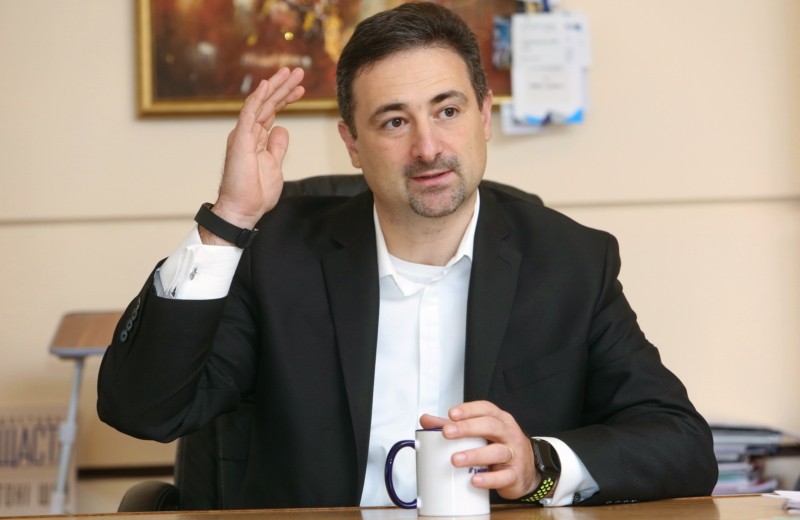Igor Smelyansky, CEO of Ukraine’s state-owned national post operator Ukrposhta, is demanding an increase in government payments for delivering pensions in Ukraine. In rural areas, in particularly, payments are made in cash as many residents in remote areas don’t have bank accounts or internet access. Some 4.3 million retirees out of the nation’s 11.5 million pensioners will be affected, Smelyansky said.
Ukrposhta relies on delivery of pensions as a major source of revenue, but says that the government has not increased its payment rate since 2004, so the service is unprofitable.
On July 11, Smelyansky sent an open letter with his demands to Prime Minister Volodymyr Groysman and Vice Prime Minister Pavlo Rosenko, Social Policy Minister Andriy Reva, and State Pension Fund Governor Yevheniy Kapinus.
None of them could be immediately reached for comment.
In the letter, Smelyansky said Ukposhta will not deliver pensions starting in 2020 unless the government raises Ukrposhta’s commission. Currently the enterprise charges around 1 percent of the monthly state pension.
However, Smelyansky wants to double the fee charged to break even. In 2018, the enterprise registered a loss of 500 million hryvnias, or $19 million, much higher than 2017’s loss of 178 million hryvnias, or $7 million.
Smelyansky, a Ukraine-born and U.S.-educated lawyer, financier and businessman, has been serving as the CEO of Ukrposhta since 2016.
Under his management, Ukrposhta has delivered in such areas as modernizing via computerization, optimization of business practices, increases in exports of packages and other improvements.
Due to the protracted conflict with the politicians over commissions, Smelyansky has experienced standoffs with Ukraine’s highest officials.
In December, Smelyansky weathered a heated exchange with then-President Petro Poroshenko, when the former president blocked Smelyansky’s plan to close post offices in rural areas. He also advised Smelyansky to cut his $10,000 monthly salary.
In a meeting preceding the publication of the open letter, Smelyansky told the press on July 10 that his intermediate goal is to get Ukrposhta ready for privatization. Ultimately he sees the company under his command privatized, at least partially.
At the moment, Ukrposhta is included into the list of enterprises not subject to privatization due to their strategic importance. The post office’s going into private hands promises to be controversial. Ukrainian politicians have resisted selling off assets of emotional importance for citizens.



